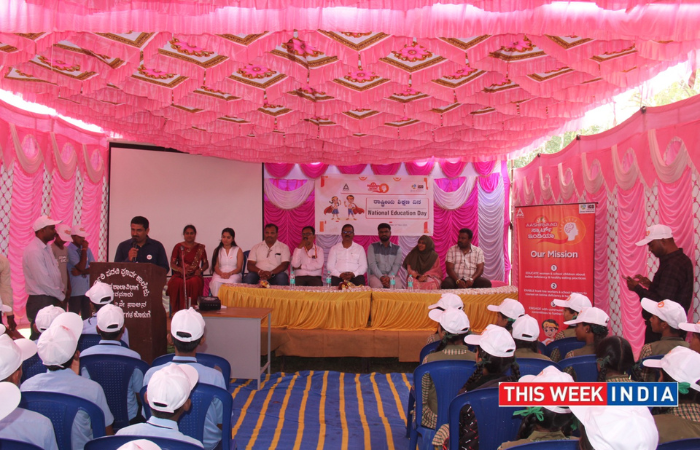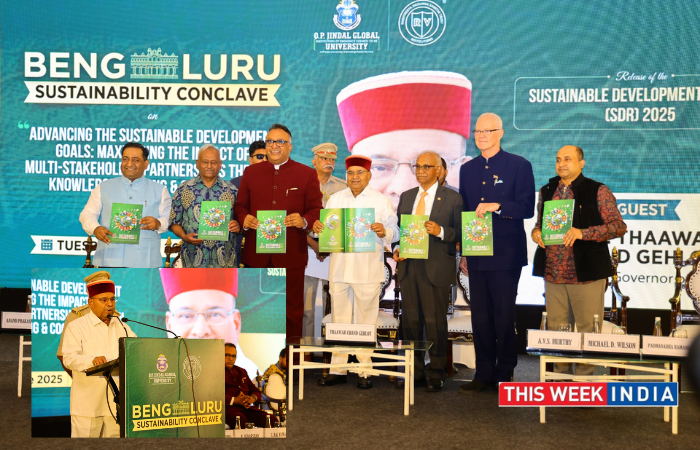Children are natural explorers, driven by curiosity and a thirst for discovery. Amidst nature, their boundless imagination finds both a canvas to create and a classroom to learn.
Managed farmlands provide an ideal haven for mindful parents seeking to shift their children’s focus from screens to the enriching world of soil, seeds, and sunshine. These spaces offer children a rare chance to experience nature in its purest form, nurturing their curiosity and teaching life’s most profound lessons through hands-on engagement with the environment—an invaluable teacher like no other.
A Natural Classroom for Holistic Living
Children thrive when they engage directly with nature, immersing themselves in activities like planting seeds, mulching, vermicomposting, and pruning. These hands-on experiences go beyond mere play, fostering a deep, meaningful connection with the environment. Through these simple yet profound tasks, children learn invaluable lessons in patience, responsibility, and the delicate balance of life’s ecosystems—lessons that no virtual platform can replicate. Such interactions not only nurture their understanding of the natural world but also inspire a lifelong respect for it, shaping them into environmentally conscious individuals with a deeper appreciation for the interconnectedness of all living things.
Inspiring Responsible Habits in Children Through Clean Spaces
Children are shaped by what they see and experience in their daily lives. When they observe practices like littering and carelessness, these behaviors can inadvertently become their norm. Enter managed farmlands—spaces where children are surrounded by lush greenery, clean surroundings, and well-maintained environments. Here, they witness waste being segregated and disposed of responsibly, with each item finding its proper bin. Such mindful practices leave a lasting impression, subtly instilling the importance of cleanliness and accountability. Over time, these lessons translate into habits, encouraging children to adopt responsible waste disposal in their own lives. Managed farmlands thus serve as more than just serene retreats—they become living examples of sustainability.
Instilling Mindful Eating Through Farm Experiences
Children often multitask, splitting their attention between meals and screens, which can disrupt their eating habits and overall well-being. Watching television during meals not only shifts their focus away from their food but also fosters mindless eating, leading to excess calorie intake and a more sedentary lifestyle. This habit increases the risk of obesity and prevents children from fully experiencing the act of nourishing themselves, as their attention remains fixated on the screen rather than the plate.
Managed farmlands present an opportunity for children to reconnect with their food in a meaningful way. Activities like picking vegetables with their own hands, observing the preparation of meals, and savoring the aroma of freshly cooked dishes engage their senses and make mealtime an immersive experience. These interactions encourage mindfulness, enhancing digestion and nutrient absorption as the body prepares for the meal. Such practices not only promote healthy eating habits but also foster an enduring respect for the food they consume and the natural processes that bring it to life.
Surprising Benefits of Gardening for Children
Did you know that soil microbes can act like nature’s antidepressants? Studies have shown that exposure to Mycobacterium vaccae, a microbe found in soil, can elevate cytokine levels in the body, leading to increased serotonin production. Known as the “happy hormone,” serotonin promotes relaxation, reduces stress, and uplifts mood. Unfortunately, urban living has distanced us from beneficial bacteria that not only enhance emotional well-being but also regulate the immune system.
When children immerse themselves in gardening—digging their hands into the soil—they reconnect with these natural allies. This simple activity helps reduce stress, boost cognitive function, and fortify their immune defenses, potentially preventing various illnesses. Gardening not only nurtures plants but also nurtures young minds and bodies, fostering healthier, happier, and more resilient children.
Conclusion
Managed farmlands are more than spaces for exploration—they are living classrooms that cultivate sustainability and shape children’s futures. Immersed in nature from an early age, children naturally absorb essential lessons on mindful waste management, responsible consumption, and environmental care. Through hands-on activities and meaningful experiences, these principles become ingrained in their values, guiding their decisions and habits as they grow.
These young stewards of the earth carry forward a profound respect for sustainability, fostering a lifelong connection with nature. Managed farmlands don’t just nurture the present generation; they inspire a future of environmentally conscious and responsible global citizens.
By -Mr. Sriram Chitlur, Co-Founder & MD, Hosachiguru









